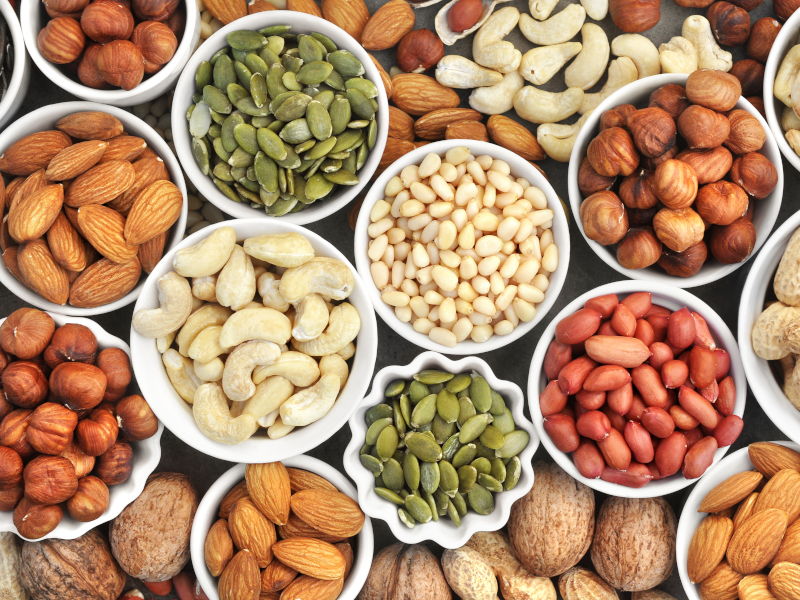
Which nuts are best for health?
From cashews and macadamias to the humble peanut, each type of nut has a unique combination of goodies, so eating a variety of different nuts is key. One is not better than the other, just different.
All nuts and seeds are high in mono and polyunsaturated fatty acids (good fats for a healthy heart), B vitamins and protein. But some nuts are higher in other nutrients (e.g., Brazil nuts are high in selenium, cashews are high in zinc, and walnuts are high in omega 3 fatty acids). Nuts have a similar nutrient composition to other foods in the ‘lean meat, poultry, fish and alternatives’ food group. Meaning, you can eat them instead of a steak, legumes or a fish fillet and your body isn’t missing out. Plus, the added benefit is that nuts and seeds have less of an environmental footprint than animal-based protein sources.
As well as a good source of protein, minerals, good fats and antioxidants, nuts have also been shown to keep you fuller for longer and reduce feelings of hunger. So, if you can, eat them often. If nuts as a snack aren’t your thing, see our delicious recipes for ways to include them in meals.
Salted or unsalted?
Unlike many processed foods that have added salt, whole nuts only have salt added to their outside. Meaning they contain less salt than many snacks, such as crackers. So, if you like a salty nut go for it - the goodness outweighs the salt. A good tip is to buy both unsalted and salted nuts and mixing them, you will soon get used to the less salty taste. We love unsalted nuts in cooking, and, if you have high blood pressure, always choose an unsalted nut.
Would you like access to dietitians & nutritionists at the tip of your fingers to answer any questions you might have? Join our community today!